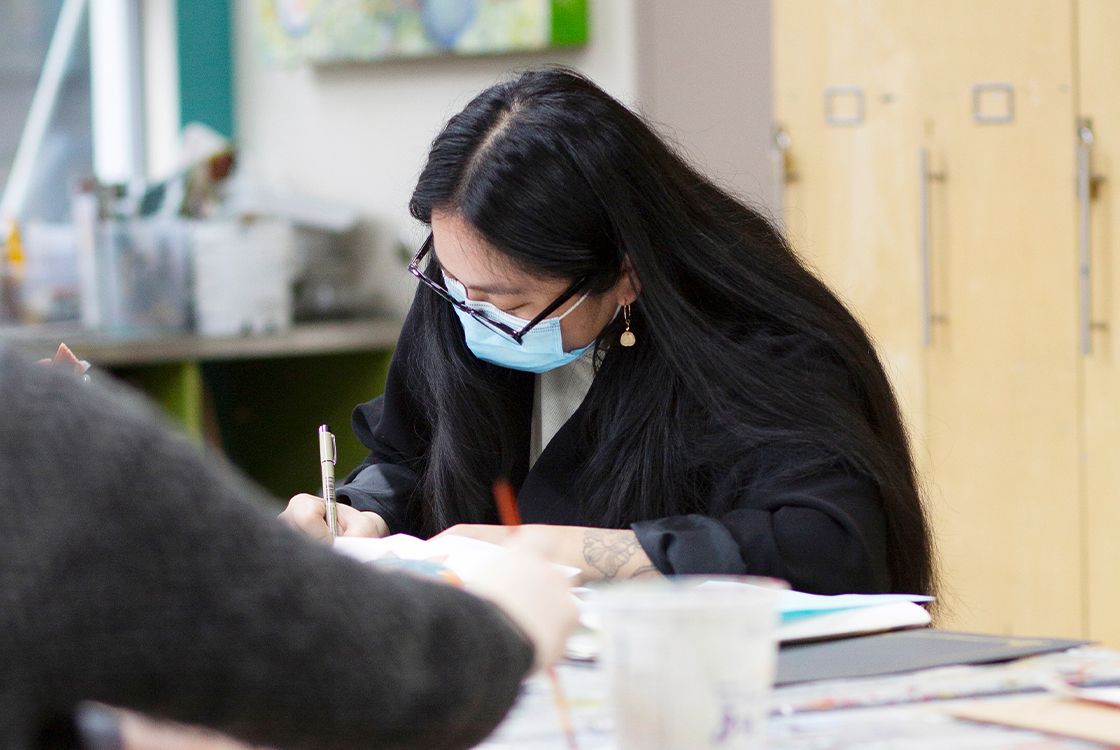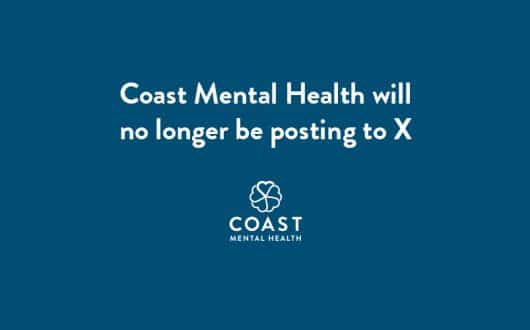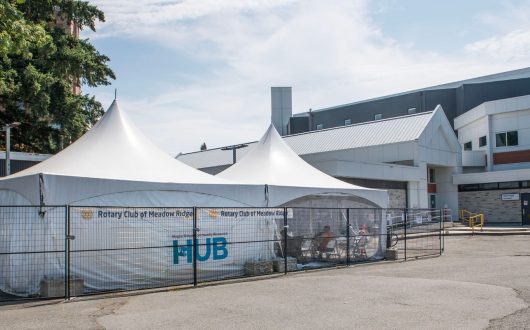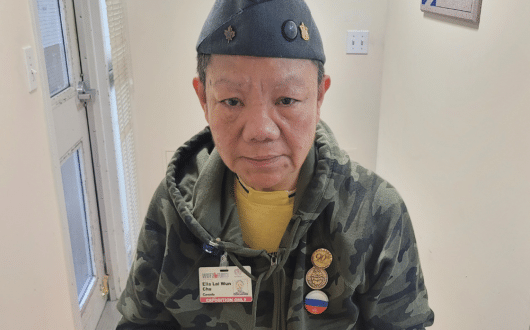Czarinna’s Story – A Lifechanging Passion for Art
Czarinna Tabobo is a recent graduate of Coast Mental Health’s Peer Support Worker training program. She’s the driving force behind one of the newest offerings at the Resource Centre: an Art Recovery Group.
Her background and passion for art, combined with her newly-acquired skills, created the perfect opportunity for her to take on a new challenge: “Once I became a Peer Support Worker, I just felt like my experience in art was something I had to keep bringing with me. Once I finished my practicum I sort of jumped right into planning a program that I really was passionate about.”
Becoming a Peer Support Worker
Peer Support Workers are a crucial part of Coast Mental Health’s support infrastructure. Their work is only possible thanks to supporters like you.
They use their firsthand experiences of living with mental illness, and the challenges of recovery to support others. In turn, they gain employment skills and experience. Many graduates from the program go on to be employed by Coast Mental Health.
“I felt that I was in the stage of my recovery where I could start to make an impact on other people’s lives, like others had done with mine,” Czarinna explained when asked about the program.
To graduate as a Peer Support Worker, Czarinna undertook 90+ hours of training and a three-month practicum.

Creating an Art Recovery Group
She approached her supervisors about creating a formal art program shortly after.
“I was really surprised when they trusted me enough to create a pilot program. To me that was really encouraging. It’s really raised my standard in terms of how I expect to be treated at work. In terms of being accepted and really encouraged. I rarely felt like I was limited.”
The Art Recovery Group is back up and running with new protocols in place after a brief hiatus during the beginning of the pandemic, and numbers are steadily increasing.
Currently around 20 individuals per month drop in to the weekly sessions, many of them regulars. The group provides an opportunity for Czarinna to teach them new art skills while checking in on their mental health and providing support.
“I think I see a lot of people come in [to the Art Recovery Group] and they can really let their guard down. I try really hard to make the place very safe and welcoming and accepting so I would definitely recommend it and I would hope that everyone that comes into the space can as well. That’s my main goal.”
Thank you for making this possible.


